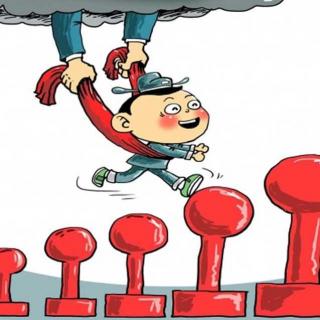
介绍:
Despite initiatives to encourage the shedding of ties between the government and alternative social service organizations, a recent report has found that little progress has been made.
In November 2013, the ruling Communist Party said at the meeting of the 18th central committee that changes were needed to what are known as “social groups” – typically referring to business associations and chambers of commerce – to provide groups with the space to operate and increase efficiency.
But a recent study by the Unirule Institute of Economics in Beijing found that there remains "no separation of the social groups from government administration or intervention.” The “social groups” continue to work closely with the government while also providing project assessments and product testing for government projects.
China has nearly 70,000 business associations and chambers of commerce, with most created by the government or directly linked to an official agency.
Unirule said the groups are generally less effective at providing services compared to similar institutions in developed countries and under coercive pressures, are less able to independently establish industry standards. The close collaboration of the groups with the government meant that members were unable to seek support from the groups in disputes with the government. The Unirule report urged regulators to ease licensing restrictions for “social groups” and reform rules to protect NGOs.
For Caixin Online, this is Diana Bates.
在一份由天则经济研究所于3月2日发表的关于行业协会和商会改革的报告指出:从一些省市的改革试点来看,目前行业协会、商会和政府权力部门之间,只能做到“形式上的脱钩”;而多数尚未实现脱钩的行业协会、商会,其行政职能、人员管理、财务资产等各方面,仍与政府行为关系紧密。
截至2013年底,中国依法登记的行业协会与商会共有将近7万个,其中全国性的行业协会与商会有800余家。但其中多数是“自上而下”,由政府所设立,或是由政府职能部门改制而成。
报告认为,与先进国家和地区相比,中国的行业协会和商会目前的社会功能,大多只能为会员单位提供简单、初阶、一般化的互益服务;但是在诸如制定技术标准、进行产品认证、落实行业自律和准入、参与国际标准制定和解决国际诉讼、参与政府决策等功能则相形缺失。
报告指出,中国的行业协会与商会缺乏独立主体地位,民间企业通过协会行使集体自我权益保护作用的功能不彰,使得工商业者遭公权力侵权的情况严重。这份报告称,民间企业每年支付的“涉公非税收各类支出”,平均占到营业额的5-10%,而这些税、费、罚款项,更占了小微企业近一半的成本。
事实上,推进行业协会与商会的改革和剥离其与权力部门的关系,并非当下才提出的新要求。早在2013年11月十八届三中全会召开时,三中全会的《决定》文件就提出了 “加快实施政社分开。限期实现行业协会商会与行政机关真正脱钩”“重点培育和优先发展行业协会商会类、科技类、公益慈善类、城乡社区服务类社会组织”“严格规范离退休国家公务员在社会组织担任负责人”等改革方向。
日前,在一份由官方公布的讲话全文中,国务院总理李克强不厌其烦地一一细数各领域“红顶中介”、“二政府”充斥,成为市场“拦路虎”,使改革红利被蚕食、简政放权效益遭到削减的乱象。事实上,中国政府推进政社分离多年,但两者仍然若即若离,有千丝万缕的联系。
这份报告的执笔学者们认为,改革中国行业协会与商会运作现况的釜底抽薪之计,在于填补行业协会和商会专门管理法规缺位的真空。
目前,所有的行业协会与商会,均只能依循《社会团体登记管理条例》进行登记和管理,不具备专门管理行业协会和商会的全国性专法。而《社会团体登记管理条例》的法律位阶低、权威性不足,各地政府被赋予的行政主导角色凸出;报告认为,这直接影响了行业协会和商会的法律地位,使其在经济活动与社会治理中所应发挥的各项功能,例如与政府部门有效平等沟通、在重大问题上获得参与听证会的机会、参与政策制定和社会资源分配讨论、促使政府制定或完善相关团体关切的规章及公共政策等,均无法获得制度性的保障。
大家还在听

